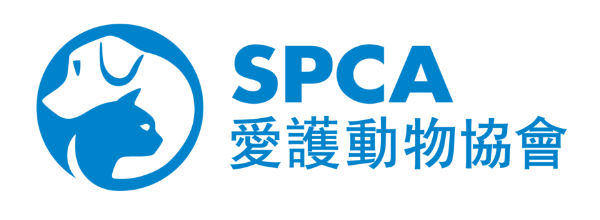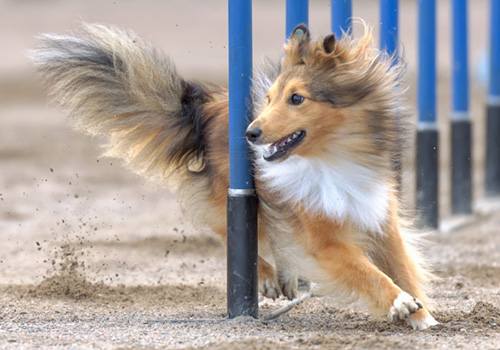Amending Cap. 169: The Prevention of Cruelty to Animals Ordinance
We welcome and support the Administration’s move to review Cap. 169 and consult the public and other stakeholders on updating the legislation.
We have long advocated for better treatment of animals and for improving the primary animal protection ordinance, particularly its expansion to include a requirement for a positive duty of care. The amended Cap. 169 should be an overarching, proactive animal welfare legislation such as an Animal Welfare Ordinance that protects all animals and promotes their good care.
We have the following comments on the proposals:
I. The concept of positive “duty of care” and related measures.
Duty of care.
We support the introduction of the concept in of “duty of care” and the clarification of to whom the positive “duty of care” will apply.
Improvement notices and related offences and sanctions
We support the introduction of improvement notices and new “duty of care” related offences and penalties (e.g. for non-compliance with an improvement notice).
We request that the option of “on the spot fines” also be considered along with a mechanism where repeated “duty of care” offences committed by the same party with a certain period of time, or repeated failure to comply with “improvement notices” could lead to further, more serious sanctions and higher penalties.
Abandonment
We note that it is planned to include abandonment primarily as a “duty of care” offence. However close attention needs to be paid when drafting legislation around the offence of abandonment to ensure that existing loopholes are closed with owners and licensees having strict liability – with the burden of proof resting with them. That responsible parties can be charged with the higher offence of animal cruelty when suffering occurs as a results of abandonment is important.
Codes of practice
In terms of prevention we support the introduction of Codes of Practice to educate and guide people in the better care of animals but still acknowledge that high penalties act as a deterrent.
Penalties for "duty of care" offences.
As such we support the introduction of a maximum penalty of three years imprisonment and a HKD 200,000 fine for contravention of “duty of care” offences.
II. Enhancing the provisions to prevent animal cruelty
Release of animals
We welcome including the release of an animal into an unsuitable environment in the definition of animal cruelty however we still believe that the release of animals into the environment needs to be controlled and regulated. We hope that in the future this will be achieved by amendment to relevant legislation such as the Cap. 170 the Wild Animals Protection Ordinance.
Deprivation and disqualification
Correcting the deficiencies in terms of protecting animals from parties who have committed acts of cruelty are long overdue. We support the raft of measures proposed to protect the animal victims and other animals from potential abuse through mechanisms to remove animals from the care of convicted parties (seizures and deprivation orders) and to implement bans (disqualification and restriction orders) relating to ownership, care and control of possession of animals for certain periods of time at the discretion of the court.
Mutilations and cruel procedures
It should be possible in this amendment exercise to include and address specific acts that severely compromise welfare, are not necessary and cause pain and as such should be banned. For instance, UK animal welfare legislation specifically bans certain procedures classifying them as “cruel operations” and “mutilations” (this also includes cosmetic “tail docking” and “de-clawing”). Whilst the Veterinary Surgeons Registration Ordinance Cap. 529 attempts to deal with some related aspects, addressing these issues in the revised Ordinance would enable the scope of related offences to be widened – with anyone commissioning or permitting such an offence to be held liable and to be prosecuted. Indeed, in some jurisdictions importation and possession of animals that have been subjected to unnecessary mutilations is banned or strictly regulated and controlled.
Poisoning
Another deficiency in the current legislation is the failure to address the offence of poisoning an animal. Poisoning should also be included in a revised definition of animal cruelty.
It is argued that the direct act of poisoning an animal would lead to suffering and hence result in a prosecutable offence but to protect animals and avoid suffering (and death) there needs to be the option of earlier intervention. Consequently, there should also be the addition of an offence to possess poisons or poisoned bait with the intent to maliciously use against animals. Again there should be strict liability with the burden of proof resting with the defendant.
Banning and regulating cruel devices.
Under advanced animal welfare legislation there is also a trend to ban or regulate devices that directly cause unnecessary suffering or will cause such if used improperly. Electric shock collars and the like are devices that should be subjected to bans. Pest control items like glue traps may also be subjected to regulation with general sale being banned and possession and use subject regulation and licensing as misuse often results in animal cruelty.
Giving animals as prizes
Other items that are addressed in some overseas legislation include the giving of animals as prizes. In Hong Kong, animals are offered as prizes mostly notably fish are used in “fish scooping” games. The SPCA (HK) considers it appropriate to ask for the introduction of a ban on giving animals as prizes and using animals in such types of games.
Animal cruelty to be triable on indictment
In terms of increasing the penalties for animal cruelty the SPCA welcomes the introduction of the option of triable on indictment with higher penalties. We support the maximum penalty as a deterrent and so we would support a maximum penalty of 10 years imprisonment and a fine of up to HKD 2,000,000 for an indictable offence.
A key point here is to properly understand if offences are to be subject to trial on indictment, or summarily. In the absence of such information we suggest also increasing the maximum sentences for offences tried summarily.
III. To enhance enforcement powers for safeguarding animal welfare
Enhancing enforcement and increasing capacity.
We support the additional offences proposed relating to the obstruction of carrying out of lawful duties under Cap. 169.
We also support the introduction of measures to safeguard and maximise the welfare of animals at risk as well as those that have already been cruelly treated. These should include the ability to enter premises to rescue animals at risk and the ability to seize these and other animals. This should be achievable either with or without (in emergencies) a warrant.
The amended legislation should also follow other common law jurisdictions (England and Wales, Scotland, Australia and New Zealand) which have a degree of flexibility in whom can be authorized as an officer to help with different areas of enforcement. It is recommended that the relevant section of the legislation is worded such that besides government officers the Director of AFCD also has the option of authorising other suitable parties as appropriate or when needed to assist with various actions under the legislation. The SPCA (HK) would like some of its Inspectors, if deemed of suitable standing on assessment of the Director of AFCD and working with in an approved framework, to be able to assist with some enforcement actions related to their day-to-day work (such as those related to rescuing animals that are suffering or at risk of suffering and also to assist with minor “duty of care” infringements and the issuing of related improvement notices). This would increase capacity and maximise the impact of the amended legislation – helping to improving more animals’ welfare and quality of life.
Ensuring the best welfare for seized animals.
We also support that mechanisms be introduced that allow animals to be released from detention as early as possible. There are already examples in Hong Kong law where animals as live exhibits being held in relation to crimes are recognised as requiring special treatment and early release from being held in relation to cases.
In the case of owned animals abused by their owner if the owner surrenders the animals we suggest that in addition to a Senior Veterinary Officer of AFCD, a police office of rank of Inspector or above can also release such an animal (many animal cruelty related seizures are undertaken by the police). This would be aligned to other sections of the legislation.
In parallel it is absolutely vital that the ability of an owner to insist on the destruction of an animal seized in relation to an offence is removed during the amendment exercise.
Time bar to be extended.
It is important that the time bar for offences under Cap. 169 be extended from the current 6 months. In England the current time bar for animal cruelty offences is 3 years and Hong Kong should adopt something similar. Whilst making more serious offences indictable will remove the time bar concerns for cases that are handled that way, the time bar of 6 months for summary offences will still remain and in some cases even though suspects have been identified it may not be possible to locate them and serve a summons with in the 6 months period from when the offence was committed. Such a short time bar thus allows suspects to evade being held accountable for their actions or inactions.
Restitution.
It is also important to consider restitution in terms of costs incurred related to the rehabilitation of injured or neglected animals as well high costs related to caring for animals during long periods of detention. At present animals are routinely held for several months as the cases are investigated and progress through the legal system but this can be extended to many months even years.
In some overseas countries suspected offenders may are required to pay a bond if they do not give up ownership of abused animals at the outset of the case. If the case is not proved the bond is returned, if it is proved however the bond is forfeited to help cover some of the costs of care. If such a mechanism can be used in Hong Kong should be explored and utilized if possible.
Even if this mechanism is not introduced the legislation should be amended to give the court the option of considering the costs incurred in rehabilitating and caring for the animal victims from the date of seizure when setting fines or making cost orders upon conviction.
General recommendations
It is important when drafting the amended legislation to use a flexible framework that will more easily allow for additional measures (or exemptions) to be introduced through secondary legislation e.g. regulations as and when necessary.
Legislation is only a tool that can be used by different parties to achieve its aims. Therefore it is important that the amended legislation is supported by increased efforts in education across all sectors.
Awareness needs to be raised on the new elements included in the amended legislation. To promote better welfare and conduct by the animal owning public Codes of Practice need to be widely disseminated. To have a deterrent effect the higher penalties need to be known.
Frontline officers need to be educated on how to use the new legislation to achieve its aims. Concepts and offences under the new legislation need to be understood by prosecutors and magistrates and judges need to assess and take into account the key elements of animal suffering when deciding on appropriate sentences.
Summary
We support the initiative to enhance animal welfare through amending and updating Cap. 169 The Prevention of Cruelty to Animals Ordinance and we give our backing to the general direction proposed. However, as can be seen from our comments above, we believe that other issues should be considered and included / addressed.
We will be giving direct input to the AFCD during the consultation exercise and over the coming months. We hope the issues we raise will be considered and our suggestions heeded. Such issues and the introduction of additional measures to protect animals and avoid unnecessary suffering (animal cruelty) should be considered in the review process and addressed in the amended legislation.
We also note that whilst amending Cap. 169 and introducing the duty of care will potentially have a wide reaching positive impact on all animals in Hong Kong in every situation there still may need to be additional action under other pieces of legislation in the coming years.
In order to further safeguard the welfare of certain species and different populations of animals there is a need to introduce specific regulation and requirements for minimum standards, inspection and licensing. A recent case involving an animal shelter is a case in point as it highlights the lack of specific regulation of these establishments and a case could be made for developing specific legislation under Cap. 139 Public Health (Animals and Birds) Ordinance.
Training Courses

Changing legislation to increase animal protection
In 2010, in conjunction with the University of Hong Kong, we released a report on animal welfare legislation in Hong Kong. One of the key recommendations was that CAP 169 was radically overhauled and the concept of ‘duty of care’ was introduced.











